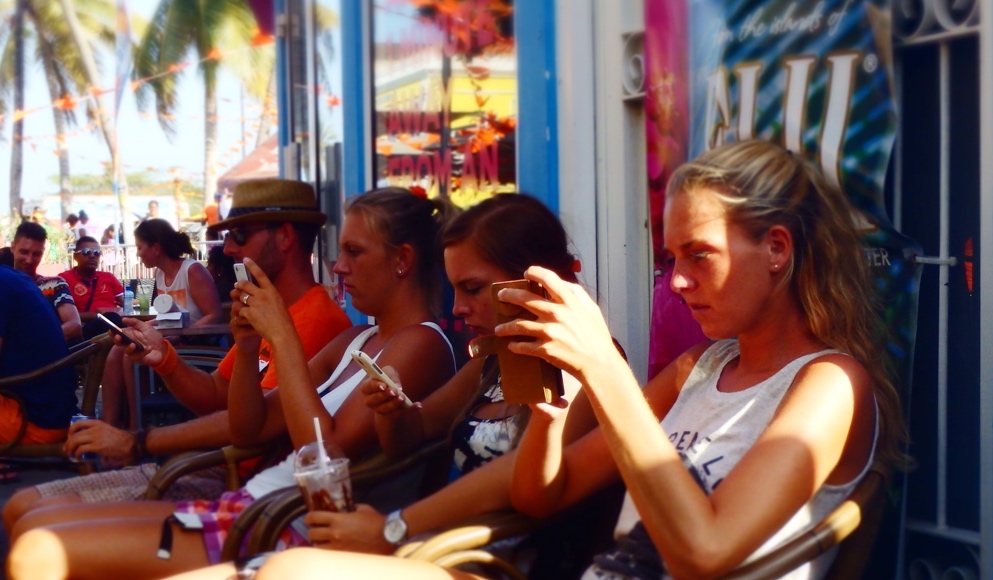
We are becoming less social. The implications for a society built on social behavior are troubling.
Studies have shown that the more time we spend on social networks like Facebook, Twitter and Instagram, the less social we become. That’s ironic but hardly surprising. As relatively superficial online connections occupy more of our time and attention we are becoming less socialized – losing the behavioral skills that help us engage each other in person.
The thing is, those skills played a central role in our rise from solitary cavemen to modern civilization.
We may be living in the communication age – an era defined by conversations, crowds and collectives – but communication bubble is probably closer to the truth. We talk a good game, but our actions say otherwise. In my experience we are becoming less comfortable, less pleasant and less cooperative with each other.
Related: The Argument for Being Human
I admit, this is vaguely reminiscent of the time when calculators first became popular. Everyone was worried that nobody would be able to do simple arithmetic anymore. Society would ultimately become slaves to the machines.
Those fears turned out to be legitimate, if unwarranted. So what if we can no longer do math in our heads, write longhand or articulate a thought without editing. Computers are ubiquitous. In the overall scheme of things, the change is a difference without a distinction. On the contrary, computers have clearly enriched our lives.
But the way our culture is changing is another matter entirely. At our very core, we are social creatures. In many respects, we exhibit pack or herd-like behavior like other animals. But the way we engage each other is uniquely human, a distinguishing characteristic of what we call human nature. And look how very far we’ve come.
Our social nature was a key factor in advancing from caves and tribes to villages and cities. Granted, opposing thumbs and standing upright played a role, as did the evolution of frontal lobes which led to critical thinking, the scientific method and modern technology.
But the fundamentals of civilization are deeply rooted in survival instincts that date back millions of years, most notably the imperative to seek out, engage and form communities with each other.
As we become less social, does civilization begin to devolve? Is that what we’re beginning to see now in the steady erosion of family values, the diminishing of religious faith, the growing hunger for sensationalistic media, the hate-filled online trolling and disaffected people committing violent acts? Those are weighty questions to which none of us have the answers.
Related: Facebook Now Has 2 Billion Mindless Zombie Users
What I do know is that social skills play an important role in our careers – landing jobs and promotions, building business relationships, managing employees, winning customers and leading organizations of all types and sizes. While those skills can be learned later in life, they’re better learned when we’re young and impressionable.
Growing up on the streets of New York, if you wanted to gain acceptance and build friendships, you learned how to read people and determine how, when and if to engage them. It’s no coincidence that so many great leaders and success stories came from inner cities – competitive environments where social skills were key to survival.
A Wall Street Journal story explains how to build rapport with an interviewer to improve your odds of getting a job. The tips come from researchers who studied bartenders, retail salespeople, stand-up comedians and others whose livelihoods depend on their ability to connect with others.
It’s sad that we need studies to tell us how to engage others and why it matters.
Perhaps we are becoming more comfortable staring at a two-dimensional screen than staring into each other’s eyes, but that doesn’t change the fact that nothing important happens in this world until two people meet and engage face-to-face. Love, families, companies and communities are all built on relationships.
If not for social skills, we would still be living in caves. And we may very well be living there again.
Image credit Kroejsanka Mediteranka via Flickr